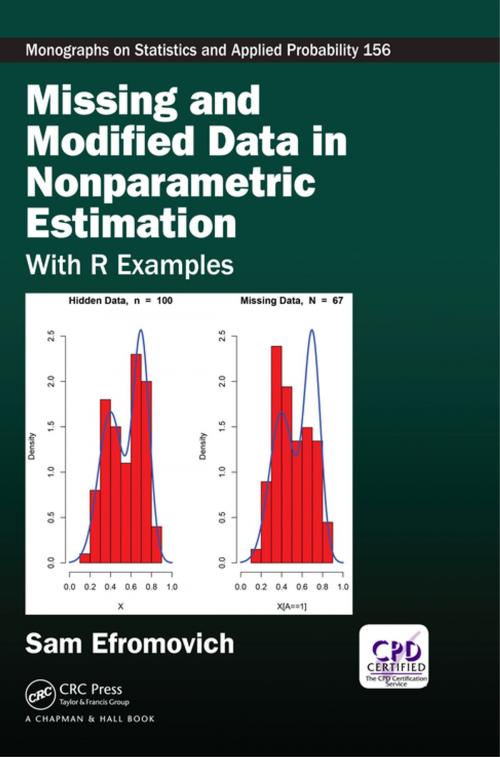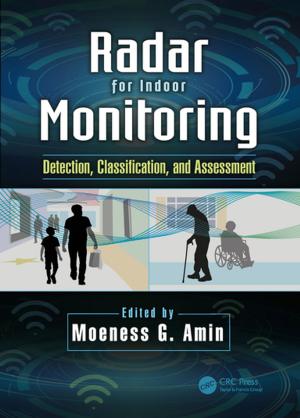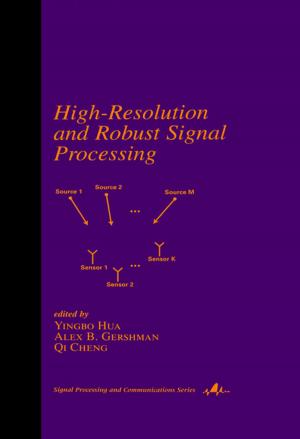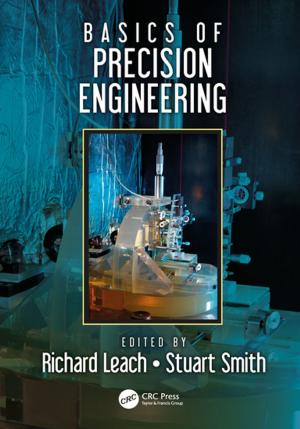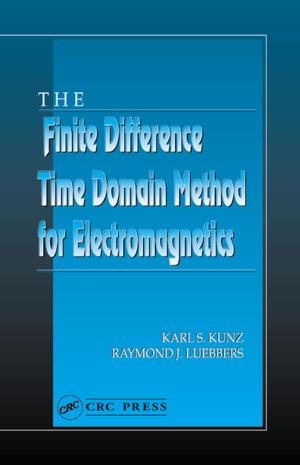Missing and Modified Data in Nonparametric Estimation
With R Examples
Nonfiction, Science & Nature, Mathematics, Statistics| Author: | Sam Efromovich | ISBN: | 9781351679831 |
| Publisher: | CRC Press | Publication: | March 12, 2018 |
| Imprint: | Chapman and Hall/CRC | Language: | English |
| Author: | Sam Efromovich |
| ISBN: | 9781351679831 |
| Publisher: | CRC Press |
| Publication: | March 12, 2018 |
| Imprint: | Chapman and Hall/CRC |
| Language: | English |
This book presents a systematic and unified approach for modern nonparametric treatment of missing and modified data via examples of density and hazard rate estimation, nonparametric regression, filtering signals, and time series analysis. All basic types of missing at random and not at random, biasing, truncation, censoring, and measurement errors are discussed, and their treatment is explained. Ten chapters of the book cover basic cases of direct data, biased data, nondestructive and destructive missing, survival data modified by truncation and censoring, missing survival data, stationary and nonstationary time series and processes, and ill-posed modifications.
The coverage is suitable for self-study or a one-semester course for graduate students with a prerequisite of a standard course in introductory probability. Exercises of various levels of difficulty will be helpful for the instructor and self-study.
The book is primarily about practically important small samples. It explains when consistent estimation is possible, and why in some cases missing data should be ignored and why others must be considered. If missing or data modification makes consistent estimation impossible, then the author explains what type of action is needed to restore the lost information.
The book contains more than a hundred figures with simulated data that explain virtually every setting, claim, and development. The companion R software package allows the reader to verify, reproduce and modify every simulation and used estimators. This makes the material fully transparent and allows one to study it interactively.
Sam Efromovich is the Endowed Professor of Mathematical Sciences and the Head of the Actuarial Program at the University of Texas at Dallas. He is well known for his work on the theory and application of nonparametric curve estimation and is the author of Nonparametric Curve Estimation: Methods, Theory, and Applications. Professor Sam Efromovich is a Fellow of the Institute of Mathematical Statistics and the American Statistical Association.
This book presents a systematic and unified approach for modern nonparametric treatment of missing and modified data via examples of density and hazard rate estimation, nonparametric regression, filtering signals, and time series analysis. All basic types of missing at random and not at random, biasing, truncation, censoring, and measurement errors are discussed, and their treatment is explained. Ten chapters of the book cover basic cases of direct data, biased data, nondestructive and destructive missing, survival data modified by truncation and censoring, missing survival data, stationary and nonstationary time series and processes, and ill-posed modifications.
The coverage is suitable for self-study or a one-semester course for graduate students with a prerequisite of a standard course in introductory probability. Exercises of various levels of difficulty will be helpful for the instructor and self-study.
The book is primarily about practically important small samples. It explains when consistent estimation is possible, and why in some cases missing data should be ignored and why others must be considered. If missing or data modification makes consistent estimation impossible, then the author explains what type of action is needed to restore the lost information.
The book contains more than a hundred figures with simulated data that explain virtually every setting, claim, and development. The companion R software package allows the reader to verify, reproduce and modify every simulation and used estimators. This makes the material fully transparent and allows one to study it interactively.
Sam Efromovich is the Endowed Professor of Mathematical Sciences and the Head of the Actuarial Program at the University of Texas at Dallas. He is well known for his work on the theory and application of nonparametric curve estimation and is the author of Nonparametric Curve Estimation: Methods, Theory, and Applications. Professor Sam Efromovich is a Fellow of the Institute of Mathematical Statistics and the American Statistical Association.
